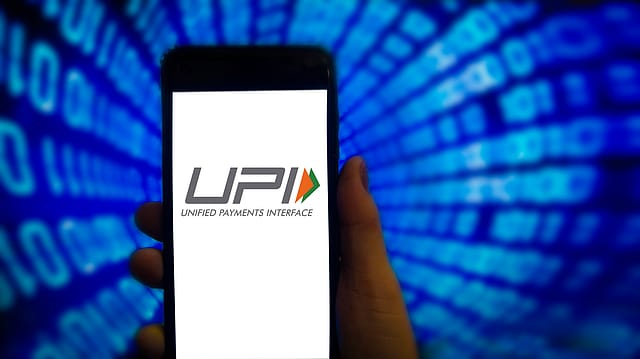UPI transactions may attract MDR charge; RBI seeks feedback
ADVERTISEMENT

The Reserve Bank of India is mulling a tiered charge framework for the Unified Payments Interface (UPI) transactions where charges could be imposed based on the different amount bands.
The central bank, in its discussion paper on Charges in Payment Systems, has sought feedback on charges related to UPI.
The paper proposes replacing the zero-charge framework for UPI transactions with a subsidy. "In the context of zero charges, is subsidising costs a more effective alternative?" the discussion paper asks.
If UPI transactions are charged, should MDR for them be a percentage of transaction value or should a fixed amount irrespective of the transaction value be levied, the Reserve Bank asks in another question, seeking feedback from general public and other stakeholders.
MDR is the rate charged to a merchant for payment processing services on various payment instruments.
"If charges are introduced, should they be administered (say, by RBI) or be market determined?" the RBI further adds.
"UPI as a funds transfer system is like IMPS. Therefore, it could be argued that the charges in UPI need to be similar to charges in IMPS for fund transfer transactions," the banking regulator notes.
January 2026
Netflix, which has been in India for a decade, has successfully struck a balance between high-class premium content and pricing that attracts a range of customers. Find out how the U.S. streaming giant evolved in India, plus an exclusive interview with CEO Ted Sarandos. Also read about the Best Investments for 2026, and how rising growth and easing inflation will come in handy for finance minister Nirmala Sitharaman as she prepares Budget 2026.
Merchant payments using UPI do not require installation of costly infrastructure by merchants as UPI QR codes are used. The cost of merchant infrastructure for UPI is lower as compared to the cost incurred in a card-based acceptance infrastructure.
For a person-to-merchant (P2M) transaction of ₹800 on UPI, collectively, the stakeholders incur ₹2 for processing the transaction, the RBI explains.
Currently, charges in UPI are nil for users and merchants alike. The government had mandated a zero-charge framework for UPI transactions with effect from January 1, 2020.
The discussion paper comes at a time when UPI transactions in July reached an all-time high at over 600 crore, according to data released by the National Payments Corporation of India (NPCI). The platform clocked 630 crore transactions worth ₹10.6 lakh crore last month.
The aim of the central bank's discussion paper is to get inputs and thereafter use them for further policy making. "As can be seen at the end of discussion on different payment systems, a few queries have been raised on which public/stakeholder feedback is requested. Based on the feedback received, RBI would endeavour to structure its policies and streamline the framework of charges for different payment services/activities in the country. At this stage, it is reiterated that RBI has neither taken any view nor has any specific opinion on the issues raised in this discussion paper," the banking regulator says.
In India, the RTGS and NEFT payment systems are owned and operated by RBI. Systems like IMPS, RuPay, UPI, etc., are owned and operated by National Payments Corporation of India (NPCI), which is a not-for-profit entity promoted by banks.
